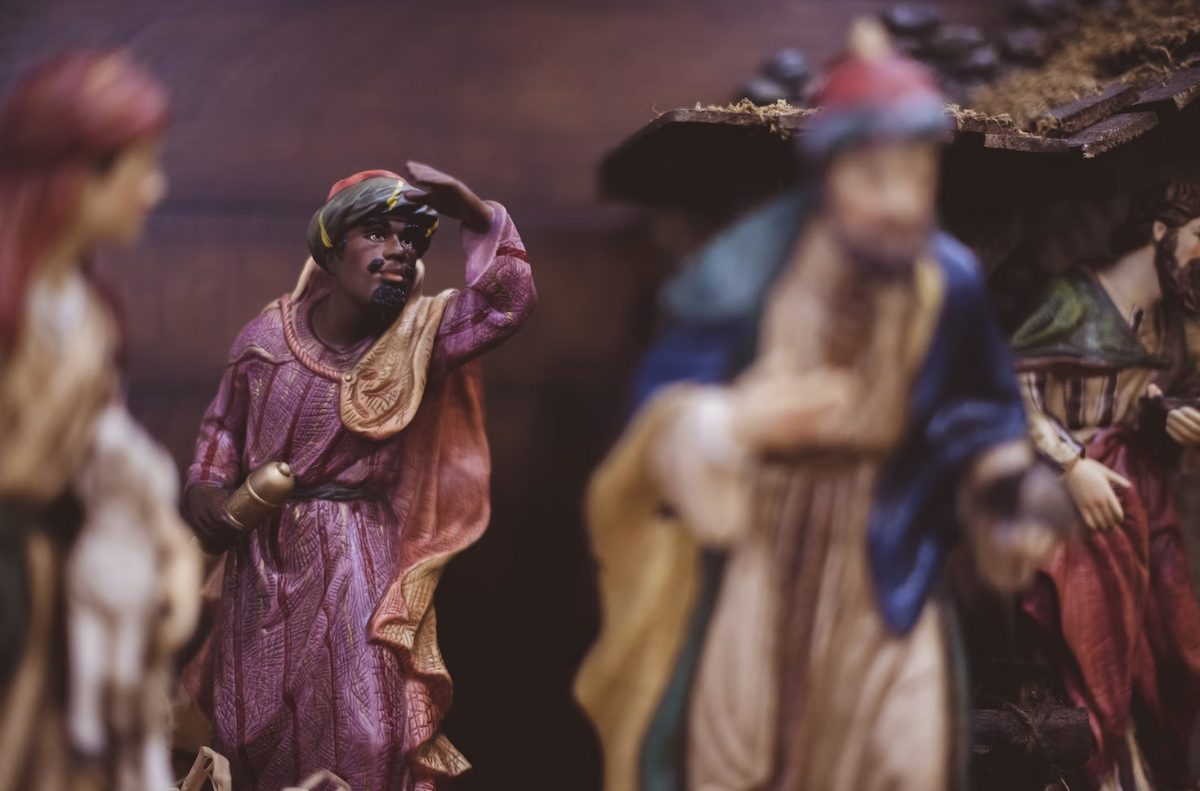You probably haven’t thought about what Christmas says about critical race theory.
You know what humanity being made in the image of God suggests about race. But you probably don’t know what God becoming man says about race.
Our likeness to God reveals a lot about our identity. But God’s likeness to us through the incarnation reveals so much more. When Jesus became a man, he didn’t just reveal more about who God is—he also revealed more about who we are.
In other words, just as the incarnation revealed more about God’s divinity, it also revealed more about our humanity. Which is why Christmas has a lot to say about critical race theory.
This is because critical race theory is fundamentally an ideology about humanity, race, and identity. Specifically, through concepts like standpoint epistemology, lived experiences, and especially intersectionality—critical race theory suggests we do not have a common identity.
According to critical race theorists, our identity isn’t shaped by our shared humanity. Instead, it’s primarily constructed by our different skin colours and ethnicities.
Therefore according to critical race theory, people with different skin colours or different ethnicities cannot identify with each other. So for instance, white people cannot identify with black people and Jews cannot identify with Palestinians.
But that creates a major theological problem. If we cannot identify with people with different skin colours or ethnicities, then Jesus cannot identify with anyone who doesn’t share his skin colour, ethnicity, or lived experiences.
If what critical race theory says about race and identity is true, then Christmas doesn’t offer us any hope.
But critical race theorists are completely wrong. The most important thing about me isn’t my skin colour or ethnicity. Otherwise, Jesus wouldn’t be able to identify with me and I wouldn’t be able to identify with him.
Hebrews 2:17-18 says:
“Therefore [Jesus] had to be made like his brothers in every respect, so that he might become a merciful and faithful high priest in the service of God, to make propitiation for the sins of the people. For because he himself has suffered when tempted, he is able to help those who are being tempted.”
This is one the most profound verses in the Bible. It destroys every argument and every lofty opinion raised against our shared humanity and common identity. Do not overlook the significance of what the author of Hebrews is saying. When he says, “[Jesus] had to be made like his brothers in every respect,” he’s not strictly referring to people who look like or lived like Jesus—he’s not strictly referring to Jews.
As suggested in Hebrews 2:11, Jesus’ brothers (or siblings) are every descendent of Adam—every human—who believes in him.
Moreover, consider that the author of Hebrews didn’t say, “[Jesus] had to be made like his brothers.” No, he said: “[Jesus] had to be made like his brothers in every respect.”
Meaning, by becoming just as human as me—Jesus is able to identify with me in every way.
Therefore although I’m black and Jesus is (probably) brown, although I’m a member of the Fanti tribe in Ghana and Jesus is a member of Jewish tribe of Judah—in his humanity, he’s able to identify with me just as much as he identifies with anyone else.
So if Jesus’ humanity means he can identify with anyone despite their skin colour and ethnicity, that means you and I can also identify with anyone.
And more importantly, the reverse is especially true. If people who aren’t black can’t identify with me because of our supposedly different lived experiences, then Jesus can’t identify with me either.
If what critical race theory says is true, then God didn’t become a man for my sake. He didn’t live for me, he didn’t die for me, he didn’t resurrect for me, he didn’t ascend to heaven for me, he isn’t interceding for me, and he isn’t returning for me.
If critical race theory says is true, then Jesus cannot identify with me—and I cannot identify with him. If our identity is primarily shaped by our skin colour or ethnicity instead of our humanity, then I cannot claim Jesus’ righteousness as my own by faith.
I think this is why so many woke people who claim to be Christians are eager to suggest Jesus is black. Maybe they recognize the theological ramifications of critical race theory.
Nevertheless, by the grace of God, critical race theory is a lie.
A dark-skinned, African Church Father named Athanasius once said, “[God] became what we are so that we might become what he is.”
He wasn’t suggesting that Jesus is an African or a black man. He means that God became human, so that by identifying with our human temptations and yet without sin—we would be able to identify with his divine righteousness.
Therefore since Jesus is able to identify with me though we do not share the same skin colour or ethnicity, I’m able to identify with other people who do not share the same skin colour or ethnicity.
This why Jesus’ humanity didn’t just reconcile God with man, it reconciles man with man.
It reconciles Jews and gentiles. It reconciles black people and white people. The good news of Jesus brings reconciliation and peace to all people who repent and believe in him.
“And the angel said to them, ‘Fear not, for behold, I bring you good news of great joy that will be for all the people. For unto you is born this day in the city of David a Savior, who is Christ the Lord.'”
Merry Christmas, my brothers and sisters!
